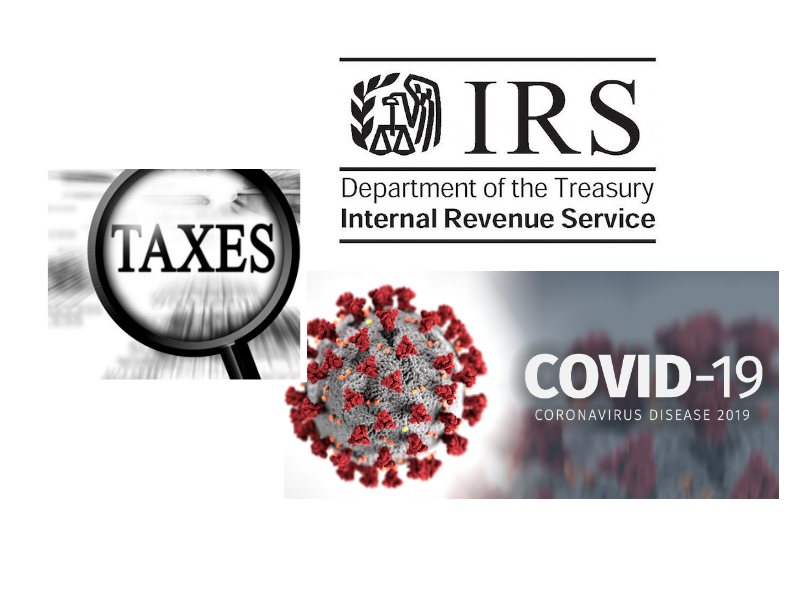From a client’s perspective, CPAs are the solution to confusing financial problems. However, with the past two tax seasons peppered with pandemic-related stressors, extended tax deadlines and a whirlwind of economic stimulus legislation, who is helping the accountants?
Running an accounting practice has always come with unique challenges, but the COVID-19 pandemic brought unprecedented challenges, as well as some less-obvious opportunities.
As lockdowns come to an end and the economy picks back up, it’s a good time to reflect on what went right (or at least ok), what went wrong, and what needs to change as we begin a slow transition into whatever the “new normal” looks like, post-COVID, for the accounting industry.
What went right
It’s easy to focus on all the hurdles placed in our way, but there have been some silver linings.
Firms without borders
When firms and their clients were forced to close their doors, everyone got a crash course in working remotely. Business leaders who didn’t trust a distributed workforce before had no choice but to place their trust in people and technology, and accounting professionals rose to the occasion.
It’s a change that’s likely to last. According to a December 2020 survey from EisnerAmper, 60% of business leaders plan to let their staff continue to work remotely post-pandemic. Only 8% will not allow employees to work virtually, and 32% are undecided.
Embracing virtual work means firms are no longer limited by geography when looking for talent or new clients. With today’s technologies, firms can work with people and businesses regardless of where they’re located, allowing even the smallest firms to have a worldwide reach.
Reinforcing the role of CPA as a trusted advisor
For a while, there was a lot of talk about the work of CPAs being automated. The past few months have shown that while automation can augment an accounting professional’s skills, in times of crisis, clients don’t simply want a tax return or financial statement — they want the trusted counsel that only a human advisor can provide.
Many people who handled their own books or filed their own tax returns in years past turned to accountants in 2020 and 2021 for help with their tax and accounting issues, including Paycheck Protection Program (PPP) loans, stimulus checks, new tax credits and early retirement account withdrawals. With more tax changes likely on the horizon, businesses and individuals will continue to need trusted advice, which presents an opportunity for CPAs to help more people and ultimately grow their firms.
What went wrong
IRS whirlwind of 2020 blew into the 2021 tax season, creating one of the most brutal tax seasons ever for many accounting professionals.
Dire backlog at the IRS
Although IRS employees continue to work tirelessly to manage the agency’s workload, it’s been an uphill battle to deal with:
- Pandemic-related staffing issues that crippled the agency’s customer service capabilities
- Outdated technology
- A backlog of unprocessed paper tax returns and correspondence related to 2019 returns
- Congressional mandates to administer Economic Impact Payments (EIPs)
- Implementation of multiple provisions of the stimulus legislation
- The high volume of 2020 tax returns needing manual processing
As a result, taxpayers and their advisors continue to deal with longer refund delays and longer wait times on the IRS’s toll-free numbers.
According to the Taxpayer Advocate Service, as of April 2021, the IRS had more than 29 million returns on hold for manual processing, including:
- 8 million individual returns in suspense awaiting review and manual processing — mostly due to Inconsistencies between the IRS’s record of EIPs and the recovery rebate credits reflected on the taxpayer returns or taxpayers who elected the 2019 “income lookback” to calculate the earned income tax credit or the additional child tax credit
- 5.3 million individual paper returns from 2019 and 2020 awaiting manual processing
- 4.7 million individual returns with processing errors or fraud identification issues requiring responses from taxpayers
- 11 million business and other returns awaiting manual processing
In an Annual Report to Congress, National Taxpayer Advocate Erin M. Collins said, “the pandemic has pulled back the curtain on significant limitations the IRS faces with technology and with its workforce.”
Two never-ending tax seasons
In March 2020, the Treasury Department and the IRS announced that the deadline for filing 2020 individual federal income tax returns would be automatically extended from April 15, 2021, to May 17, 2021. Similarly, the deadline for filing 2019 returns was automatically extended to July 15, 2020.
While the change brought some much-needed relief for taxpayers struggling to meet the original deadlines, it didn’t help accounting professionals who were already stretched to the limit. Because the Treasury did not extend the deadline for first quarter 2021 estimated tax payments, preparers still had to put in the work of preparing 2020 returns to advise clients on how much they needed to pay for Q1.
What needs to change
While Congress has provided a modest boost in IRS funding in the past few years, more will be needed to adequately fund the agency in order to upgrade its technology, hire and train more customer service and enforcement personnel.
Even if President Biden gets the $80 billion in IRS funding he mentioned in his address to Congress, seeing real results will take time. In the meantime, consider taking steps to prepare for a better busy season next year.
Improve firm processes and technology
Once the dust settles, hold a post-mortem with your team to discuss what went right and what went wrong in your firm. Discuss roadblocks your team encountered while working from home or in the office and what you can change to make tax season smoother in the future.
Look into technology that can automate part of the process, such as collecting client documents, inputting data, delivering tax returns, or collecting e-filing signatures.
Initiatives that consider both processes and technology can help you get work out the door faster, better serve your clients and increase revenues.
Spend more time doing what you enjoy
If the past two tax seasons have left you and your team feeling burned out, look for ways to address the cause of burnout, rather than just treating the symptoms. Recovering from burnout isn’t as simple as taking time off in the summer because burnout is typically a systemic problem caused by low levels of autonomy, lack of support, and spending too much of your workday on tasks that you don’t enjoy. We’ve all seen the spike in two-week notices that come in during the fourth quarter of each fiscal year, just before employees are hit with yet another busy season.
Find a way to spend more time doing the aspects of your job you’re passionate about and look for ways to automate, delegate or outsource the rest. You may not need full-time help year-round, but you can supplement your team during busy season, and even into extension season, to reduce the burden on you and your team.
Every tax season has its unique challenges, but after back-to-back busy seasons made even more stressful by the pandemic, many accountants have reached their wit’s end. Use that motivation to make changes that will improve your practice and decrease your stress level no matter what new challenges the next busy season brings.
=========
Richard Laviña is the CEO and co-founder of consumer, small business and enterprise SaaS accounting-tech company Taxfyle. Prior to founding Taxfyle in 2015, Richard worked for PricewaterhouseCoopers as an auditor. While working at PwC, he obtained his Master of Accounting and was inspired to start Taxfyle, having witnessed firsthand and learned about the systemic inefficiencies of the accounting industry. Since then, Ricky and his team have transformed Taxfyle from an idea to a venture-backed company that serves tens of thousands of taxpayers each year, hundreds of CPA firms around the country, and counts a Big Four accounting firm and international accounting corporations among its enterprise clientele.
Thanks for reading CPA Practice Advisor!
Subscribe Already registered? Log In
Need more information? Read the FAQs
Tags: Firm Management, Taxes




